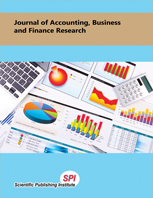Stakeholders Perception of Public Sector Performance Audit
DOI:
https://doi.org/10.55217/102.v14i2.517Keywords:
Audit expectation gap, Public expenditure, Medium term expenditure framework, Public sector, Transparency.Abstract
This study focuses on evaluating public sector audit quality on public expenditure management in Nigeria. Qualitative and quantitative research was applied, and the data was analyzed using SPSS and NVivo 10. The F-statistics of 37.611, 27.644 and 27.218 explain the variations as adequate and significant at p < 0.000. The R ratios of 0.621, 0.562 and 0.559 indicate a significant influence of the audit quality on agencies’ expenditure management. The R-squared values of 0.385, 0.315 and 0.312 for public expenditure management are influenced by audit quality. The study found a significant relationship between audit quality, agencies’ expenditure management, and external influences on auditors that impair their independence. It also highlighted the absence of an audit commission. Therefore, it is recommended that the Audit Act is amended to promote mandatory annual audits that address economy, efficiency and effectiveness (3Es). In addition, standardized performance guidelines regarding the presentation of audit reports should be made available to curtail non-audit service contracts from agencies.


